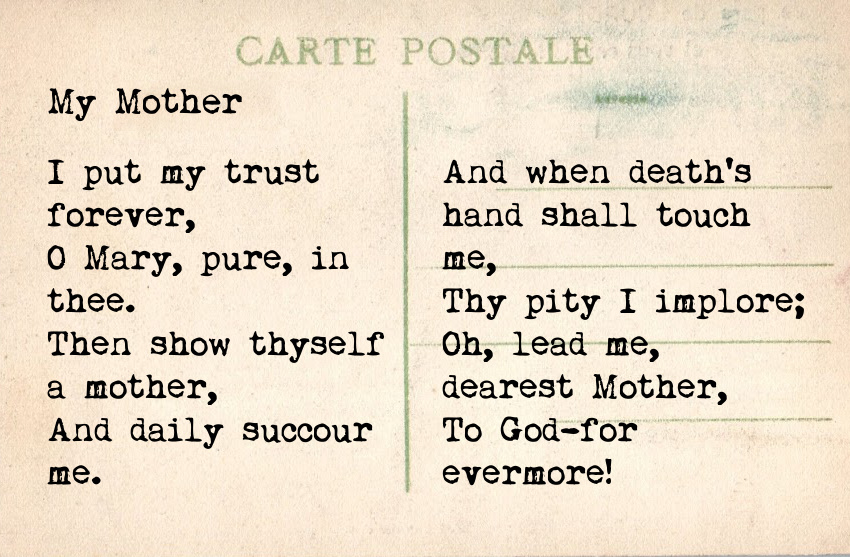In Chapter 35 of Our Lady of Lourdes, the story reflects on the deep meaning behind the Virgin Mary's commands to Bernadette, emphasizing the importance of spiritual acts over miraculous signs. The chapter explores the skepticism of the local clergy and townspeople, highlighting their misunderstanding of the true significance of the apparitions and their requests for superficial miracles, while underscoring the enduring nature of divine works intended to inspire faith and repentance.
Find more chapters here.
There was certainly some truth in the Abbé Peyramale’s sly repartee; but, perhaps, not so much as he was inclined to think. Surely, if at that moment with his profound sagacity and high-mindedness, he had maturely reflected on the words which the Celestial Vision had pronounced a short time after having smiled, he would have comprehended the meaning of the smile which the poor child, favored though she was with such visions, was unable to interpret.
“To pray for sinners, to do penance, to climb kneeling the steep and difficult slope which leads from the rapid and tumultuous waves of the torrent to the unchangeable rock on which one of the sanctuaries of the Church was to be founded,”—such had been the commands of the Apparition at the close of the child’s prayer; such had been Her answer to the request that She should cause the wild-rose to blossom; such had been, from Her own mouth, the plain and clear commentary on Her smile. Who does not see after due reflection, the admirable meaning of this symbolic response?
“And what, even though I am the Mother of the God-Saviour, the Mother of tht Jesus who spent his life in doing good and in consoling the afflicted, could they demand nothing from me as a proof of my power buy this idle and frail marvel, which the rays of the sun, who is my Servant, will perform of themselves a few days hence? When a multitude of sinners, indifferent or hostile to the law of God, covers the surface of the globe; when they have need, above all things, to scale on their knees the rugged path which separates the fleeting and troubled life of the flesh from the unchangeable life of the spirit; when the salvation of so many outcasts and the healing of so many sick in soul is the constant study of my maternal heart, am I not to give better proofs of my Power and Goodness than to make roses bloom in the depth of winter? and is it for so trifling an amusement that I appear to a young girl on earth and open my hands full of graces before her?”
Such was, it appears to us, as far as it is permitted to a wretched man to penetrate and interpret things so lofty in their nature, the deep meaning of the smile and the commands by which the Mother of the human race replied to the request of the Pastor of Lourdes. God, more especially in evil and necessitous times, does not condescend to fritter away ⎝if we may use the expression⎠, his omnipotence in vain prodigies which only strike the eye, or in ephemeral wonders which would wither before the close of day and be carried away by the first blast of wind. When it is His will to found aught eternal, He supports it by some eternal proof which future ages will not be able to impair.
What, meanwhile, was the signification of the command received by Bernadette to scale on her knees the surface of the Grotto until her progress was arrested by the escaprment of the parched rock? No one knew; and, in the presence of that arid rock, no one dreamed that, from the moment the Synagogue had committed self-murder while thinking to slay Jesus, the staff of Moses had passed as an heir-loom to the people of Christ.
The Curé of Lourdes, despite the lofty range of his mind, did not at once see these things which the future was to make so clear. The strong doubts he cherished within him of the reality of the Apparition prevented him from meditating carefully on the various circumstances connected with the scene at the Grotto, and fixing on them that clear glance which he usually threw on the things pertaining to God.
The Free-thinkers of the place, although somewhat disconcerted at the conversions produced that day at the Rocks of Massbielle by the extraordinary splendor of Bernadette’s transfiguration, triumphed exceedingly at the check the believers had met with, in regard to the humble and graceful proof which had been demanded by M. Peymale. They praised the latter even more than they had done on the previous day for having exacted a miracle.
“Jacomet,” they said, “was guilty of a blunder in wishing to kill the Apparition: the Curé, with much greater shrewdness, forces her to commit suicide.” Incapable of appreciating the loyal simplicity of his impartial wisdom, which doubtless, demanded some proofs before either believing or rejecting the matter, they attributed to craft what was really the result of prudence, and detected a snare in the simple prayer of an upright and which was in quest of truth. As we see, on this occasion, these gentlemen were almost on the point of paying the Curé of Lourdes the high compliment—which he certainly did not deserve— of reckoning him as one of their own number.


No comments:
Post a Comment